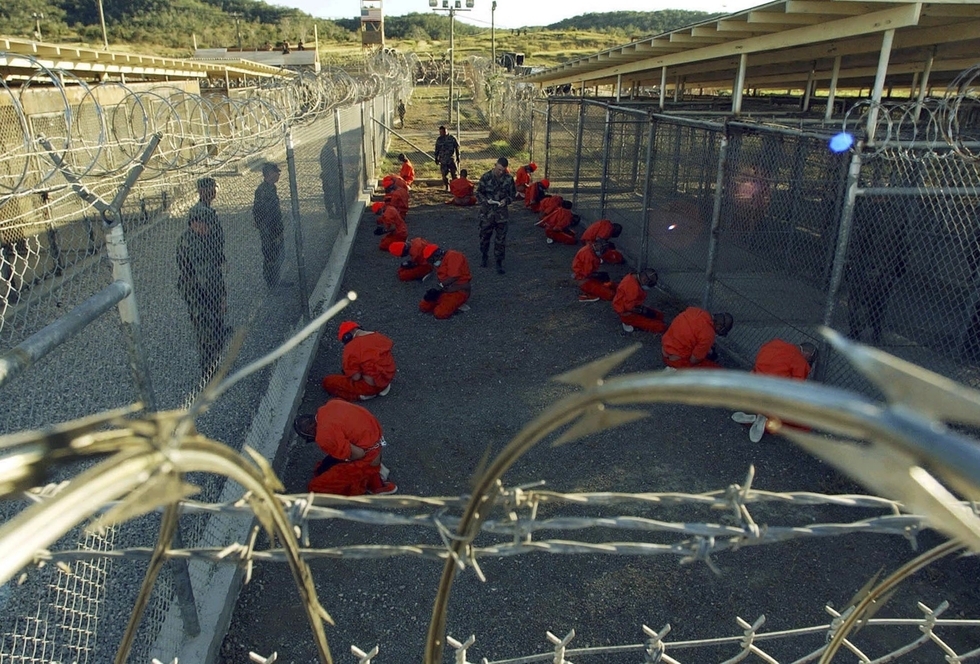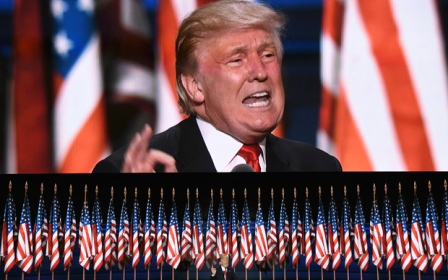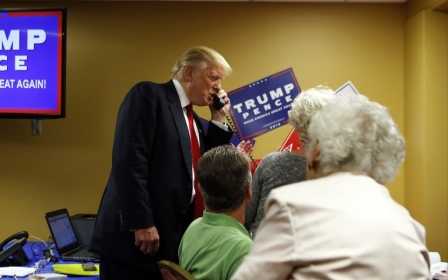Trump considers ditching ban on torture and 'black site' prisons

Donald Trump is considering sweeping away laws banning CIA "black site" prisons and cruel treatment of terrorism suspects introduced in the wake of widespread torture under George W Bush, according to a draft executive order obtained by US media.
The New York Times on Wednesday said the three-page order, “Detention and Interrogation of Enemy Combatants”, would revoke the Obama administration's closure of CIA secret prisons on foreign soil, block access to prisoners by the International Committee of the Red Cross, and allow "for the detention and trial of newly captured" prisoners at Guantanamo Bay.
The Times said the order did not direct any immediate reopening of CIA prisons or revival of torture tactics, now barred by statute, but instead sets up high-level policy reviews to make further recommendations in both areas to Trump.
However, US House of Representatives Speaker Paul Ryan said on Wednesday that the Trump administration did not write the document.
"My understanding is this was written by somebody who worked on the transition before who's not in the Trump administration. This is not a product of the administration," Ryan said in an interview with MSNBC.
The new US president vowed during his election campaign to bring back waterboarding and "a hell of a lot worse" – not only because “torture works” but because "they deserve it anyway for what they do to us".
Elisa Massimino, the director of Human Rights First, told the Times the draft order was “flirting with a return to the ‘enhanced interrogation' programme."
Specifically, the order would revoke two executive orders about prisoners issued by Obama shortly after his inauguration in January 2009. One was a directive to close the Guantanamo prison, which never happened, although no new prisoners were sent to the facility during his presidency.
The second was his directive to end CIA prisons, grant Red Cross access to all prisons, and limit interrogators to the army field manual techniques - which fall short of the "enhanced interrogation" introduced under the Bush adminsitration.
Trump has faced widespread opposition to his calls to revert back to the Bush-era regime of "enhanced interrogation".
On Wednesday Senate Armed Services Committee Chairman John McCain pushed back at the news of the new draft order.
“The president can sign whatever executive orders he likes. But the law is the law," McCain said in a statement. "We are not bringing back torture in the United States of America."
Human rights groups have criticised Trump for his statements on bringing back torture in his fight against Islamic State and other groups.
The British government, which co-operated and colluded with the US during the Bush years, has refused to explicitly rule out co-operation in a new regime.
Katie Taylor, the deputy director at international human rights organisation Reprieve said Britain must act to ensure it is not dragged into a new Trump order.
“The CIA’s secret prison programme was one of the most shameful chapters in recent US history," she said.
"It saw men, women and even children kidnapped, abused and ‘rendered’ to dungeons around the world – causing untold damage to America’s reputation and security.
"It is astonishing that President Trump is seeking to turn back the clock and revive a programme that did such terrible damage to US interests.
“America’s allies must ensure they never again support a revived CIA torture programme. Britain’s prime minister must make clear to President Trump that the UK will not support torture or mistreatment of prisoners, and make clear to the British public what safeguards she will put in place when dealing with US agencies.”
New MEE newsletter: Jerusalem Dispatch
Sign up to get the latest insights and analysis on Israel-Palestine, alongside Turkey Unpacked and other MEE newsletters
Middle East Eye delivers independent and unrivalled coverage and analysis of the Middle East, North Africa and beyond. To learn more about republishing this content and the associated fees, please fill out this form. More about MEE can be found here.




